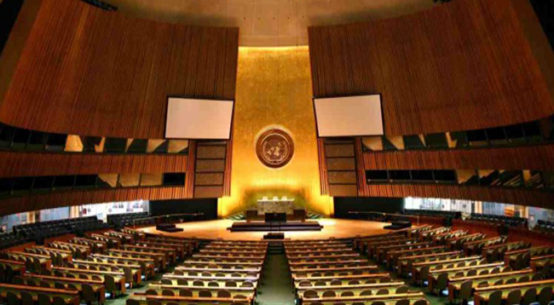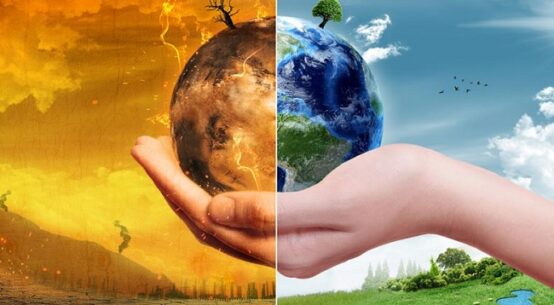The United Nations, which has failed to help resolve some of the world’s ongoing and longstanding civil wars and military conflicts—including Palestine, Afghanistan, Yemen, Western Sahara, Myanmar, Syria, and most recently, Ukraine—was rightfully challenged by Ukrainian President Volodymyr Zelenskyy during his riveting address to the Security Council last April.
“Where is the peace that the United Nations was created to guarantee? And “where is the security that the Security Council was supposed to guarantee?” he asked, via tele-conferencing.
The UN has also remained helpless—with a divided Security Council in virtual paralysis — in another long-running political issue: the nuclear threat from North Korea, where a Security Council resolution for additional sanctions against DPRK was vetoed last month by Russia and China (even though it garnered 13 out of 15 votes).
The UN’s declining role in geo-politics, however, has been compensated for by its increasingly significant performance as a massive humanitarian relief organization.
These efforts are led by multiple UN agencies such as the World Food Program, the World Health Organization (WHO), the UN children’s fund UNICEF, the Office of the UN High Commissioner for Refugees (UNHCR) , the UN Population Fund (UNFPA), the Food and Agriculture Organization (FAO), the International Organization for Migration (IOM) and the UN Office for the Coordination of Humanitarian Affairs (OCHA), among others.
These agencies, which have saved millions of lives, continue to provide food, medical care and shelter, to those trapped in war-ravaged countries, mostly in Asia, Africa and the Middle East, while following closely in the footsteps of international relief organizations, including Doctors Without Borders, Save the Children, international Committee of the Red Cross (ICRC), CARE International, Action Against Hunger, World Vision and Relief Without Borders, among others.
The UN’s increasing role in humanitarian relief work could perhaps earn the world body a new designation: United Nations Without Borders.
Besides humanitarian assistance, the UN also oversees nearly 90,000 peacekeepers in more than 12 UN peacekeeping operations and several observer missions, mostly in post-conflict situations., “helping countries navigate the difficult path from conflict to peace.”
In an interview with US Ambassador Linda Thomas-Greenfield last month, Anne McElvoy of “The Economist Asks” Podcast said “the UN is becoming a giant humanitarian relief organization, …and it’s sort of really retreating from big-time geopolitics simply because this formula of the UN, the format of it and the way its checks and balances work, aren’t sharp or effective enough in the world as it is. Your thoughts?”.
Justifying the existence of the UN as a political body, Thomas-Greenfield said: “The UN is what we have, and we’re all members and we have to work every single day to ensure that this organization functions and that it provides the platform for ending conflict. It is the one place where we can all sit at the table together”.
She also said: “The UN is the one place where we can have discussions on peace and security. And it is the responsibility of the UN to work to prevent the scourge of war. That’s what it was created for. And so, we have not given up on the organization. We’ve not given up on the goals of the organization.”
Last month, the Executive Director of WFP David Beasley said the World Food Programme has fed about 130 million people, mostly in conflict zones, last year. This year, that number is expected to rise to be about 150 million.
At the daily news briefings, UN spokesperson Stephane Dujarric provides a list of the humanitarian relief provided by UN agencies worldwide, particularly in conflict zones.
As of May 26, Dujarric said the UN and more than 260 of its humanitarian partners in Ukraine have reached 7.6 million people with assistance. Cash support also continues to increase with an additional 1.1 million people reached in May.
From March to May, a total of 1.5 million people have received cash assistance and health care support while around 352,000 people have been provided with clean water and hygiene products.
“We have also reached nearly 430,000 people with protection services, psychosocial support and critical legal services, including support to internally displaced persons,” he added.
In the Horn of Africa, the UN and its partners have provided about 4.9 million people with food while more than two million livestock have been treated or vaccinated, and over 3.3 million people have received water assistance.
In the Democratic Republic of the Congo, the UN and its NGO partners, have started distributing aid to thousands of people in Nyiragongo territory, including food to some 35,000 people, water, and medicine to at least 10,000 people.
Since January last year, the UN has also reached out to about 1.1 million drought-impacted people in the Grand Sud, Madagascar, with critical assistance, which has played a vital role in averting the risk of famine.
This has been possible due to the generosity of donors, who contributed $196 million out of the $231 million required for the Grand Sud drought response, between January of last year and May of this year.
In an op-ed piece for IPS, Dr Alon Ben-Meir, a retired professor of international relations at the Center for Global Affairs at New York University (NYU), said although the UN has lagged greatly in its intended purpose to maintain international peace and security, it has over the years established many agencies that provide significant humanitarian assistance in many fields.
Among the most important agencies are the Office of the High Commissioner for Human Rights, World Food Program, International Monetary Fund, UN Educational, Scientific and Cultural Organization (UNESCO), World Health Organization, High Commissioner for Refugees, and UN Women, he wrote.
“In this respect, the UN has become a massive relief organization,” he declared.
Kul Gautam, a former UN Assistant Secretary-General and ex-Deputy Executive Director at UNICEF, told IPS the UN system has not been as effective as its founders had hoped in preventing wars and maintaining peace and security.
It has also been less effective than what many developing countries had hoped for in helping them tackle the challenges of economic development and social progress.
Its saving grace has, therefore, been largely in the area of humanitarian relief and rehabilitation – an area which is now heavily populated by UN agencies, non-governmental organizations (NGOs) and faith-based charities.
“This is not to underestimate the value of the UN’s humanitarian response, as the world today confronts historically unprecedented numbers of refugees, displaced persons, victims of natural and man-made disasters and new forms of violence against women, children and other vulnerable groups”.
But as modern wars, violent conflicts, pandemics and increasingly perilous environmental crises can no longer be contained within national boundaries, but require concerted multilateral action, the need for a stronger and more effective UN is more urgent today than ever before, said Gautam, author of “My Journey from the Hills of Nepal to the Halls of the United Nations”. www.kulgautam.org.
Andreas Bummel, Executive Director, Democracy Without Borders, told IPS the UN’s humanitarian activities are essential. This is where the UN has the most immediate impact.
In the field of peace and security it should not be forgotten that the UN was created as a tool of its member states, he pointed out.
“State sovereignty is the UN’s most glorified principle. The UN has no independent authority and no means of enforcement. Even if it had, it is difficult to imagine how it could interfere in a conflict that involves one of the big powers”.
The UN was not intended to wage war against any of them, he argued, “That’s why the veto right was created. The veto is being misused though for political purposes. This is not in line with the purpose of the UN and the spirit of its Charter,” he declared.
Thalif Deen is IPS UN bureau chief and regional director North America. He has been covering the UN since the late 1970s. A former deputy news editor of the Sri Lanka Daily News, he was also a senior editorial writer on the Hongkong daily, The Standard.


